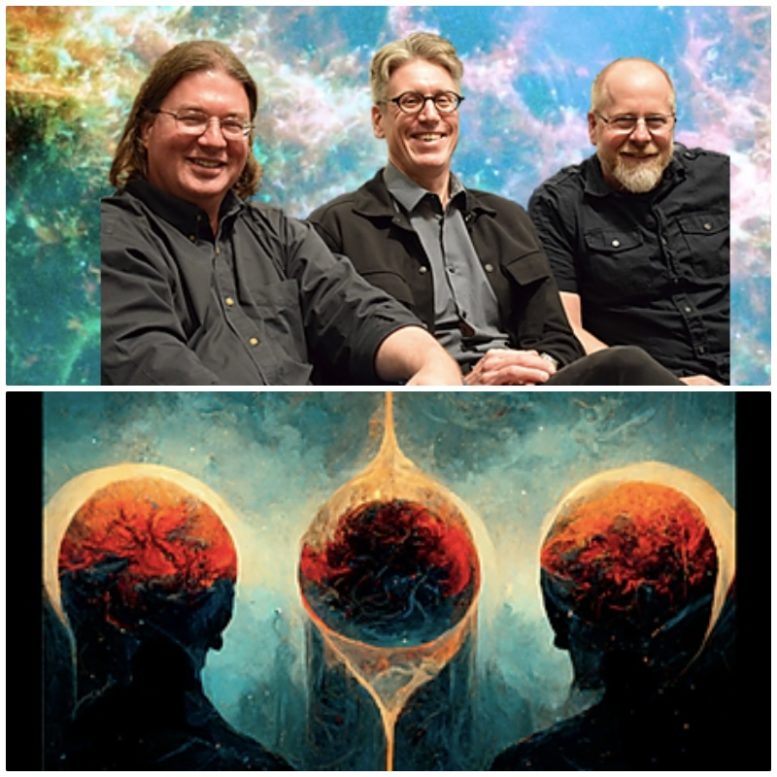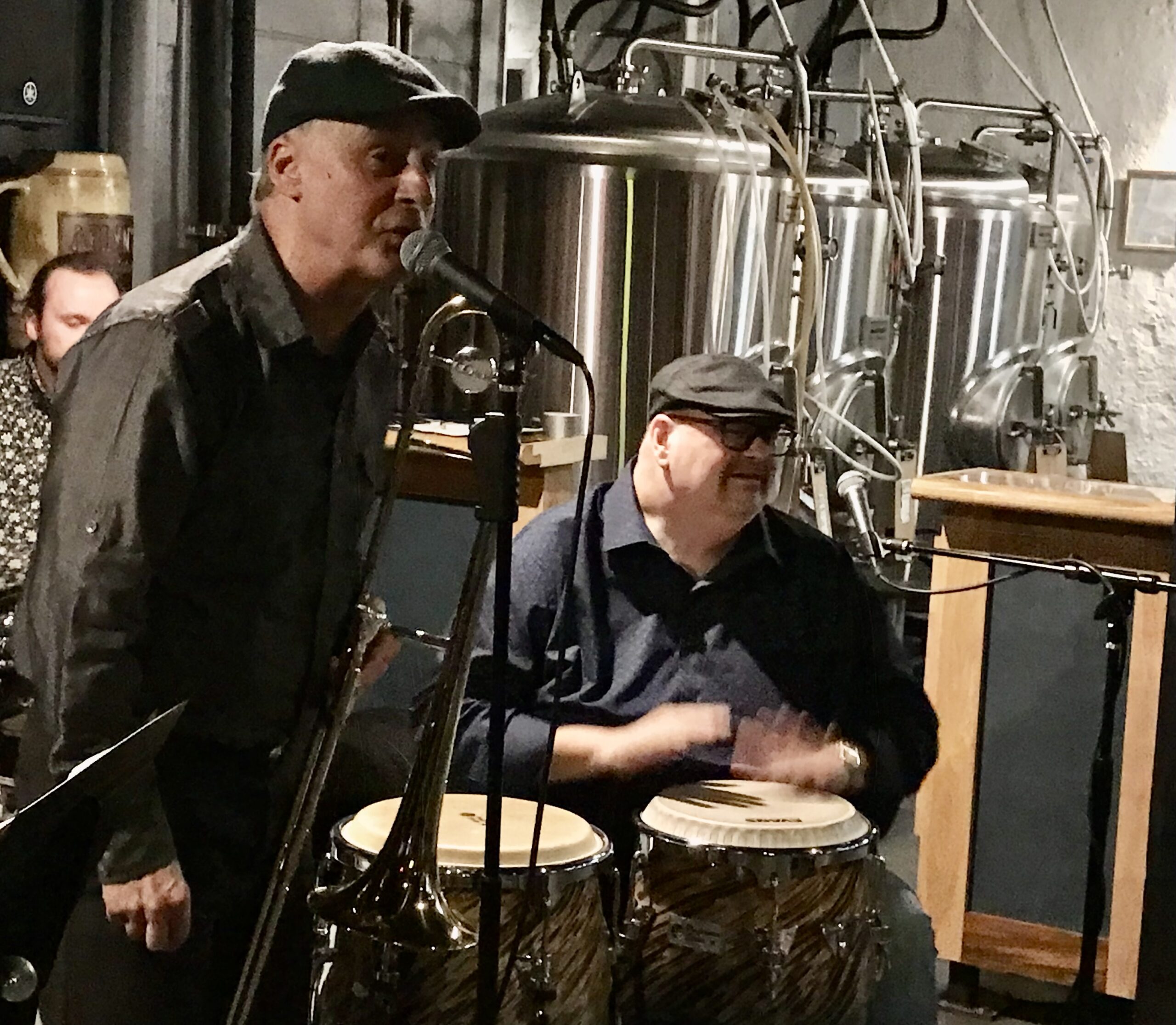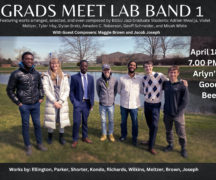By DAVID DUPONT
BG Independent News
The Three-Body Problem has resolved itself with the release of the band’s first CD, “Light Gave Way.”
The trio will perform music from their debut album, plus a few covers, at a show Friday, April 7 at Arlyn’s Good Beer, 520 Hankey Ave. in Bowling Green.
The three bodies in question are Bruce Collet, piano and vocals, Jeff Hammond, drums, and Mark LaVenia, bass. The three middle aged musicians weave together decades of music into a post progressive rock sound with elements of rock and minimalism.
Collet’s vocal influences reflect the range of their sound. He’s particularly inspired by Morrissey of the Smiths and contemporary music diva Meredith Monk.
This is not music the listener will encounter on any streaming service, Collet said. Nothing sounds like what The Three-Body Problem plays.
The trio will mix in a handful of covers of songs by The Who, U2, the Beatles, and Led Zeppelin, into the two sets on Friday. These familiar numbers help ground the music for the listeners.
Led Zeppelin has a special place in the band’s origin story. During a recent interview at Arlyn’s, Collet and Hammond discussed the roots of The Three-Body Problem.
Hammond said his involvement in music started with violin lessons that his mother insisted he take. But he had “oppositional disorder” and resisted. “I didn’t want to do it because she was making me,” he said. “But I always liked music as a kid.”
Then at a friend’s house he heard the album “Led Zeppelin IV,” and opener “Black Dog” grabbed his attention. “I heard Jimmy Page’s guitar harmony on the last verse and John Bonham was doing this weird thing I didn’t understand at the time.”
He decided that “I want to pay rock ‘n’ roll. I liked the drums because I didn’t have to be out front.”
In eighth grade, he and some friends had formed a band called Higher Ground because they were trying to play the Stevie Wonder song of the same name. “It was a total basement band disaster.”
That led to playing with cover bands in the western suburbs of Chicago performing everything from Stevie Wonder to Smashing Pumpkins.
Collet had played piano throughout his youth and sang in choirs. He got hooked on rock by another song from “Led Zeppelin IV,” “Rock and Roll” with its driving piano riffs. That led to his own basement band inspired by the Sex Pistols and the Buzzcocks.
He went off to Wisconsin to college, first to University of Wisconsin Eau Claire, and then to the University of Wisconsin in Madison.
He was in a post-punk outfit originally called About the Poets, now called A Thousand Plateaus, keeping the initials. That band recently had a reunion, he said.
He moved to Chicago to attend graduate school. He spent 10 years there and got involved the experimental music scene epitomize by the Thrill Jockey label. He was in trios with a female singer and a duo that experimented with ambient music.
The drummer’s and pianist’s musical streams converged in what would become the driveway between their new homes on Pine Valley Drive. Both built homes next to each other about 2017.
Hammond works for Accenture in information technology. Collet is a professor in the School for Educational Foundations where he teaches comparative international education.
Collet said they had the same builder who told him that his next-door neighbor had played drums with bands in Chicago. Collet wanted to meet him.
Collet and Hammond started jamming together, playing piano-driven songs that fit with the piano and drums. The British group Go Go Penguins, a progressive jazz trio that married minimalism with jazz in style of Keith Jarrett.
The original music started taking shape, Hammond said, when they started jamming on riffs. Then Collet would bring over melodic ideas that they could develop.
They didn’t get together during the pandemic, though Collet continued to take voice lessons over Zoom with operatic tenor Shawn Mathey.
When they expanded to a trio, their bass player was Devonte Stovall, a BGSU music student and a stalwart on the BG music scene. When he moved away to pursue his graduate studies, they started looking around for another bassist.
Collet remembered that someone said the husband of one of his colleagues was a bass player. “That’s how we found Mark,” Collet said.
“The first day he showed up, we knew the chemistry was there,” Collet said.
LaVenia brought in another dimension. He had played with a heavy metal band that had toured Europe.
He brought the speed and precision of heavy metal to the mix. “There’s a kind of intensity that Mark brings,” Collet said.
The Three-Body Problem was set.
All three members are settled, and all have musical experience. This isn’t the first band for any of them, Hammond said.
They share “an openness to musical ideas. … We all came to this with different trajectories,” he said.
“A lot of the structure and arrangement comes from original ideas Bruce brings to the table,” Hammond said. “In my opinion as a drummer every song has multiple chapters, multiple parts. These offer listeners different points of entry.” If a listener doesn’t get into a song right away, he said, “there’s a part that’s going to follow pretty quickly that may appeal to them.”





